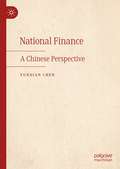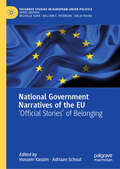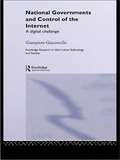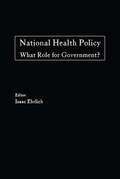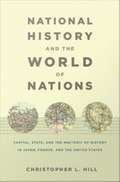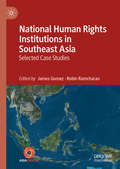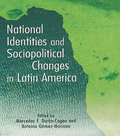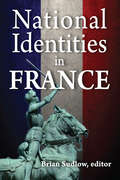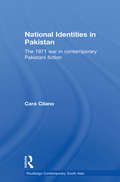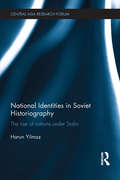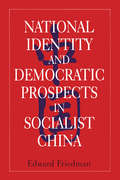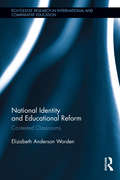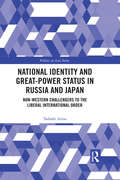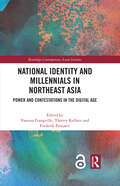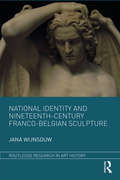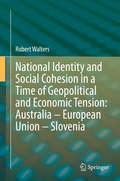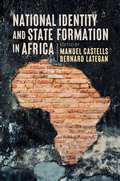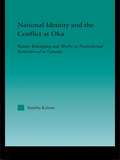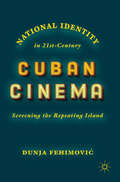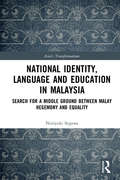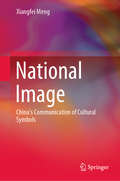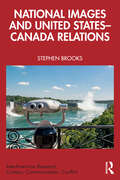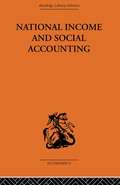- Table View
- List View
National Finance: A Chinese Perspective
by Yunxian Chen“National finance” is a new concept launched by the author in his book National Finance ─ A Chinese Perspective, a unique monograph that differs from other financial publications dealing with general topics in public finance. The monograph intends to provide a full, well-developed and macro-level exposition of all major aspects of finance from the perspective of the central government, with focus laid on the most essential, immediate and intricate issues in national financial development, which are the "hard nuts" that have to be cracked on both central and regional levels and on the fronts of both offshore and onshore finance. It attempts to cope with a series of formidable challenges that a country, particularly its top government officials, must take in developing finance: how national finance should develop and overtake in the face of rising financial industries, how it should respond to the influx of AI+blockchain technologies, how a country guards against and copes with systematic or regional financial risks with security, fluidity and profitability serving as its cornerstones, how it can build up and promote the new international financial system and governance amid international financial powers around the world, and so on.
National Government Narratives of the EU: 'Official Stories’ of Belonging (Palgrave Studies in European Union Politics)
by Hussein Kassim Adriaan SchoutThis book examines and compares government narratives of the EU. It thereby addresses a topical issue of major political importance. Bringing together leading specialists from across Europe, it takes a first step in filling a gap in the scholarly literature where attention has focused mainly on narrative-making at the EU level or societal understandings of ‘Europe’. At a time when crises, the rise of Eurosceptic populism and the UK’s departure have revealed significant differences in how states view the purpose of the European Union and the significance and value of EU membership, it asks: How do governments explain and justify their relationship with the EU? How do these narratives change over time? What do these visions imply for the EU’s future?
National Governments and Control of the Internet: A Digital Challenge (Routledge Research in Information Technology and Society)
by Giampiero GiacomelloIn recent years, Internet control has become one of the major indicators to assess the balance between freedom and security in democracies. This book explores and compares why, and to what extent, national governments decide to control the Internet and how this impacts on crucial socio-economic activities and fundamental civil rights. The author provides detailed studies on the US, Germany, Italy and further case studies on Brazil, Canada, India, the Netherlands, South Africa and Switzerland, to address topics such national security, freedom of expression and privacy.
National Health Policy: What Role for Government?
by Isaac ErlichMany papers included in this volume express skepticism regarding both the diagnosis of the American health system as fundamentally ailing and the prescription of greater public intervention in the financing and delivery of medical services as the remedy and sure path to recovery.
National History and the World of Nations: Capital, State, and the Rhetoric of History In Japan, France, and the United States
by Christopher L. HillFocusing on Japan, France, and the United States, Christopher L. Hill reveals how the writing of national history in the late nineteenth century made the reshaping of the world by capitalism and the nation-state seem natural and inevitable. The three countries, occupying widely different positions in the world, faced similar ideological challenges stemming from the rapidly changing geopolitical order and from domestic political upheavals: the Meiji Restoration in Japan, the Civil War in the United States, and the establishment of the Third Republic in France. Through analysis that is both comparative and transnational, Hill shows that the representations of national history that emerged in response to these changes reflected rhetorical and narrative strategies shared across the globe. Delving into narrative histories, prose fiction, and social philosophy, Hill analyzes the rhetoric, narrative form, and intellectual genealogy of late-nineteenth-century texts that contributed to the creation of national history in each of the three countries. He discusses the global political economy of the era, the positions of the three countries in it, and the reasons that arguments about history loomed large in debates on political, economic, and social problems. Examining how the writing of national histories in the three countries addressed political transformations and the place of the nation in the world, Hill illuminates the ideological labor national history performed. Its production not only naturalized the division of the world by systems of states and markets, but also asserted the inevitability of the nationalization of human community; displaced dissent to pre-modern, pre-national pasts; and presented the subject's acceptance of a national identity as an unavoidable part of the passage from youth to adulthood.
National Human Rights Institutions in Southeast Asia: Selected Case Studies
by Robin Ramcharan James GomezThis book reviews Southeast Asia’s National Human Rights Institutions (NHRIs) as part of an emerging assessment of a nascent regional human rights architecture that is facing significant challenges in protecting human rights. The book asks, can NHRIs overcome its weaknesses and provide protection, including remedies, to victims of human rights abuses? Assessing NHRIs’ capacity to do so is vital as the future of human rights protection lies at the national level, and other parts of the architecture—the ASEAN Intergovernmental Commission on Human Rights (AICHR), and the international mechanism of the Universal Periodic Review (UPR)—though helpful, also have their limitations. The critical question the book addresses is whether NHRIs individually or collaboratively provide protection of fundamental human rights. The body of work offered in this book showcases the progress of the NHRIs in Southeast Asia where they also act as a barometer for the fluid political climate of their respective countries. Specifically, the book examines the NHRIs’ capacity to provide protection, notably through the pursuit of quasi-judicial functions, and concludes that this function has either been eroded due to political developments post-establishment or has not been included in the first place. The book’s findings point to the need for NHRIs to increase their effectiveness in the protection of human rights and invites readers and stakeholders to find ways of addressing this gap.
National Identities and International Relations
by Lebow Richard NedIdentity is the master variable for many constructivist scholars of international politics. In this comparative study, Richard Ned Lebow shows that states do not have identities any more than people do. Leaders, peoples, and foreign actors seek to impose national identifications consistent with their political projects and psychological needs. These identifications are multiple, fluid and rise in importance as a function of priming and context. Leaders are at least as likely to invoke national identifications as rationalizations for policies pursued for other reasons as they are to be influenced by them. National identifications are nevertheless important because they invariably stress the alleged uniqueness of a people and its country, and are a principal means of seeking status and building self-esteem. Lebow tracks the relative appeal of these principles, the ways in which they are constructed, how they influence national identifications, and how they in turn affect regional and international practices.
National Identities and Socio-Political Changes in Latin America (Hispanic Issues)
by Antonio Gomez-Moriana Mercedes Duran-CoganThis study frames the social dynamics of Latin American in terms of two types of cultural momentum: foundational momentum and the momentum of global order in contemporary Latin America.
National Identities in France
by Brian SudlowNational Identities in France explores nationalism, national identities, and the various ways in which these concepts are accepted, adapted, discarded, or internally disputed across ideological divides. The popular assumption that automatically regards nationalism as a largely right-wing concern, occludes the many ways in which nationalism and national identities have contributed to social imagination and political or literary discourses across the right-left spectrum. The critical grounds on which such reflections are undertaken are rich and varied. The idea of invented traditions has long suggested how such a thing as the modernnation-state could vest itself in the creatively assembled robes of a dim and distant past. In plotting the ground on which nationalisms are located, previous studies have shown, among other things, the uses and limitations of the distinction of ethnic and civic nationalism. Studies on national development reveal the imitative process that brought about nation building in former colonies of the Western powers. Each chapter asks important questions concerning nationalism and national identities in relation to France. With nationalism, apparently stable distinctions collapse under the pressure of French national identity. The signs are that French national identities and nationalisms are in a constant state of reinvention and negotiation, of periodic crisis and constant rebirth. If political classes attempt to manipulate national identity for some larger project, they have no monopoly on the social imaginary. National mobilization is a multiple and polysemic process, not a univocal and rigid ideology.
National Identities in Pakistan: The 1971 war in contemporary Pakistani fiction (Routledge Contemporary South Asia Series)
by Cara CilanoIn 1971, a war which took place in Pakistan that resulted in the establishment of two separate countries; East Pakistan became Bangladesh, leaving the remaining four western provinces to comprise a truncated Pakistan. This book examines how literature by those who remained Pakistanis acts as a cultural response to the threat the war posed to a nationalist identity. It provides an analysis of the writing by Pakistani authors in their attempt to deal with the radical shock of the war and shows how fiction about the war helps readers imagine what the paring down of the country means for any abiding articulation of a Pakistani group identification. The author discusses English-and Urdu-language fictions in the context of the historical debate about Pakistani nationalism, including how such nationalism informs literary culture, and in the contemporary interest in official apologies for the past. The author organises the literary analysis around four key issues: the domestic sphere and the family; the territorial limits of citizenship; multiculturalism, class, and nationalist history; and diasporic imaginings of the nation. These issues resonate across the fictions in both languages and the author's analysis of them traces how these works grapple with changing notions of what it means to be Pakistani after the civil war and offers an interesting discussion to studies in South Asia.
National Identities in Soviet Historiography: The Rise of Nations under Stalin (Central Asia Research Forum)
by Harun YilmazUnder Stalin’s totalitarian leadership of the USSR, Soviet national identities with historical narratives were constructed. These constructions envisaged how nationalities should see their imaginary common past, and millions of people defined themselves according to them. This book explains how and by whom these national histories were constructed and focuses on the crucial episode in the construction of national identities of Ukraine, Azerbaijan and Kazakhstan from 1936 and 1945. A unique comparative study of three different case studies, this book reveals different aims and methods of nation construction, despite the existence of one-party rule and a single overarching official ideology. The study is based on work in the often overlooked archives in the Ukraine, Azerbaijan, and Kazakhstan. By looking at different examples within the Soviet context, the author contributes to and often challenges current scholarship on Soviet nationality policies and Stalinist nation-building projects. He also brings a new viewpoint to the debate on whether the Soviet period was a project of developmentalist modernization or merely a renewed ‘Russian empire’. The book concludes that the local agents in the countries concerned had a sincere belief in socialism—especially as a project of modernism and development—and, at the same time, were strongly attached to their national identities. Claiming that local communist party officials and historians played a leading role in the construction of national narratives, this book will be of interest to historians and political scientists interested in the history of the Soviet Union and contemporary Eastern Europe, the Caucasus and Central Asia.
National Identity and Democratic Prospects in Socialist China
by Edward FriedmanThis analysis of every facet of a national identity makes it less likely that the next great explosion in the Commmunist world - and its consequences - will come as a surprise. It investigates tendencies in China that might lead it down the same path as Russia and Yugoslavia.
National Identity and Economic Interest
by Peter C. Y. ChowThe book covers the legal, economic, socio-political and international aspects of economic integration and the contending forces of national identity and economic interests after the economies between Taiwan and China are integrated and the trading bloc is emerging across the Taiwan Strait.
National Identity and Educational Reform: Contested Classrooms (Routledge Research in International and Comparative Education)
by Elizabeth Anderson WordenNational identity in Moldova remains contested despite repeated attempts by governments, historians, and educators to cultivate a shared sense of national belonging through the development of history textbooks. Concern over professional status and distrust of the government’s motivations halted these reforms, demonstrating that the success of such efforts greatly depends on teachers’ and citizens’ social memory and everyday lives. This volume looks at educational reform and the struggle over national identity in the history classroom from the perspectives of five different groups: elected politicians, Ministry of Education officials, textbook authors and historians, teachers, and students. Each chapter explores the actors’ motivations and agendas regarding reform, their role in promoting or obstructing the reform process, and their opinions about the ensuing controversy. Drawing on months of fieldwork and original research, author Elizabeth Worden examines the importance of teachers and students in the success or failure of a reform initiative.
National Identity and Great-Power Status in Russia and Japan: Non-Western Challengers to the Liberal International Order (Politics in Asia)
by Tadashi AnnoHaving suffered military defeat at the hands of advanced Western powers in the 1850s, Russia and Japan embarked upon a program of catch-up and modernization in the late-19th Century. While the two states sought in the main to replicate the successes of the advanced great powers of the West, the discourse on national identity among Russian and Japanese elite in this period evinced a considerable degree of ambivalence about Western dominance. With the onset of the crisis of power and legitimacy in the international order ushered in by the First World War, this ambivalence shifted towards more open revolt against Western dominance. The rise of communism in Russia and militarism in Japan were significantly shaped by their search for national distinctiveness and international status. This book is a comparative historical study of how the two "non-Western" great powers emerged as challengers to the prevailing international order in the interwar period, each seeking to establish an alternative order. Specifically, Anno examines the parallels and contrasts in the ways in which the Russian and Japanese elites sought to define the two countries’ national identities, and how those definitions influenced the two countries’ attitudes toward the prevailing order. At the intersection of international relations theory, comparative politics, and of historical sociology, this book offers an integrated perspective on the rise of challengers to the liberal international order in the early-twentieth century.
National Identity and Millennials in Northeast Asia: Power and Contestations in the Digital Age (Routledge Contemporary Asian Societies)
by Frederik Ponjaert Vanessa Frangville Thierry KellnerThis book examines how the young in Northeast Asia engage with the political, especially in terms of the production, reformulation, or contestation of their national identities. Through case studies covering China, Japan, South Korea, North Korea and Taiwan, the contributions provide a study of the online spaces where youth engage with current debates regarding national identities. The book also unpacks the distinctive forms of expression and negotiation of national identities favoured by younger generations across Northeast Asia and asks questions specifically raised by their political mobilisation. For example, how their public mobilisation for a given cause has forced them to rethink their place in national and global communities. This book will be a valuable resource for scholars and students of East Asian culture and politics, media studies and youth studies. The Introduction of this book is freely available as a downloadable Open Access PDF at http://www.taylorfrancis.com under a Creative Commons Attribution-Non Commercial-No Derivatives (CC-BY-NC-ND) 4.0 license.
National Identity and Nineteenth-Century Franco-Belgian Sculpture (Routledge Research in Art History)
by Jana WijnsouwThis book elaborates on the social and cultural phenomenon of national schools during the nineteenth century, via the less studied field of sculpture and using Belgium as a case study. The role, importance of, and emphasis on certain aspects of national identity evolved throughout the century, while a diverse array of criteria were indicated by commissioners, art critics, or artists that supposedly constituted a "national sculpture." By confronting the role and impact of the four most crucial actors within the artistic field (politics, education, exhibitions, public commissions) with a linear timeframe, this book offers a chronological as well as a thematic approach. Artists covered include Guillaume Geefs, Eugène Simonis, Charles Van der Stappen, Julien Dillens, Paul Devigne, Constantin Meunier, and George Minne.
National Identity and Social Cohesion in a Time of Geopolitical and Economic Tension: Australia – European Union – Slovenia
by Robert WaltersThis book aims to enrich the thinking and discussion in relation to the importance that citizenship, immigration, rights and private laws play in the modern world. This is in a time when social cohesion and national identity is being challenged. It will explore the impact these laws have had on Australia, European Union (EU) and Slovenia. Identity and social cohesion are contested concepts and can invoke different responses. The challenges states and the EU are likely to face in retaining and even strengthening their respective identities and social cohesion from continued geopolitical shocks, security, economic volatility and environmental degradation is likely to be formidable. These alone pose some of the most complex political and policy issues facing the world. The EU can be held up as a polity that, has developed an identity and level of cohesion, while allowing member states to retain their national identities. It has, to date, also been successful in managing the rise of nationalism. However, that has come under threat in recent times. Thus, the very foundations of liberal democracy could be diluted from the impact of these challenges. Moreover, the basic foundations of rights have, in part, already been diluted from the rise of terrorism (which is acceptable), however, the geopolitical differences pose a significant challenge, in, and of themselves.
National Identity and State Formation in Africa
by Manuel Castells Bernard LateganThis book examines how the interplay between globalization and the assertion of local identities is reshaping the political landscape of Africa. While defending their values against external forces, people simultaneously – and paradoxically – use the interconnectivity of global networks to maximize their particular interests. Focusing on the relation between national identity and state formation, the authors explore the far-reaching consequences of these contradictory dynamics. Although Africa shares many common trends with other parts of the world, it also displays distinctive features. A region characterized by the increased mobility of people, goods and ideas challenges some conventional assumptions of statecraft and also highlights the advantages of federalism – not merely as a constitutional option, but as a pragmatic device for managing diversity and holding fragile states together. The book further explores emerging types of state formation in the same political space, as exemplified by the combination of elements of a kingdom, an independent state and a national power base in the province of KwaZulu-Natal and the careful crafting of an alternative state within a state by the Solidarity Movement in South Africa. Informed by examples and case studies drawn from different parts of Africa, this book will be of great interest to students and scholars of Africa, politics, sociology, media studies and the social sciences more generally.
National Identity and the Conflict at Oka: Native Belonging and Myths of Postcolonial Nationhood in Canada (Indigenous Peoples and Politics)
by Amelia KalantThrough readings of literature, canonical history texts, studies of museum displays and media analysis, this work explores the historical formation of myths of Canadian national identity and then how these myths were challenged (and affirmed during the 1990 standoff at Oka. It draws upon history, literary criticism, anthropology, studies in nationalism and ethnicity and post-colonial theory.
National Identity in 21st-Century Cuban Cinema: Screening the Repeating Island
by Dunja FehimovićNational Identity in 21st-Century Cuban Cinema tours early 21st-century Cuban cinema through four key figures—the monster, the child, the historic icon, and the recluse—in order to offer a new perspective on the relationship between the Revolution, culture, and national identity in contemporary Cuba. Exploring films chosen to convey a recent diversification of subject matters, genres, and approaches, it depicts a changing industrial landscape in which the national film institute (ICAIC) coexists with international co-producers and small, ‘independent’ production companies. By tracing the reappearance, reconfiguration, and recycling of national identity in recent fiction feature films, the book demonstrates that the spectre of the national haunts Cuban cinema in ways that reflect intensified transnational flows of people, capital, and culture. Moreover, it shows that the creative manifestations of this spectre screen—both hiding and revealing—a persistent anxiety around Cubanness even as national identity is transformed by connections to the outside world.
National Identity, Language and Education in Malaysia: Search for a Middle Ground between Malay Hegemony and Equality (Asia's Transformations)
by Noriyuki SegawaThis book explores the ways in which language and education policies have contributed to the development of national integration in Malaysia, by examining whether and how policies have succeeded in forming a middle ground. Considered through the lenses of policy-making structure and achievement, this volume examines the relationships between the formation of a middle ground in language and education policies and the political structure, economic growth strategies and social system. It then goes on to explore the extent to which these policies have contributed to national integration whilst providing a valuable discussion on the complexities involved in developing a consistent policy framework. Drawing on research surveys of Malay proficiency amongst ethnic Chinese people, it ultimately demonstrates how the unification of education streams has contributed to the spread of the Malay language as a major medium of inter-ethnic communication within the Chinese community. As the most up-to-date study of contemporary Malaysian politics, focusing on the issue of national integration, this book will appeal to students and scholars of Southeast Asian politics, ethnicity, and education policy.
National Image: China’s Communication of Cultural Symbols
by Xiangfei MengThis book introduces researchers, students and the general public to an intriguing phenomenon at the intersection of diverse fields: national branding. In particular, it uses representative cases particularly to show how China responded to major challenges, not only in the distant past, but also especially in our hectic age of national image construction. By pursuing an interdisciplinary, socio-historical approach, the book sheds new light on the role of cultural symbols in national image building. As such, readers will learn how China has exploited its “black-and-white” tradition – calligraphy and painting – in the construction of a national image.
National Images and United States-Canada Relations (InterAmerican Research: Contact, Communication, Conflict)
by Stephen BrooksThis book explores the psychological–cultural dimension of the United States–Canada relationship by analyzing how each country has viewed the other. Drawing on a wide range of data, including primary sources, secondary literature, and survey research, the methodology is historical/analytical, seeking to explicate and understand how Americans and Canadians, and their elites, have viewed one another from the moment they were launched on separate trajectories, why they developed and held such ideas, and what consequences these images had for the bilateral relationship between the countries. American and Canadian images of the other have deep roots and are, in many respects, recognizably the same today as they were many decades ago. Moreover, even when anchored to important realities of the other, such images influence the perception and interpretation of events, and actions taken by the other. How Americans and Canadians have viewed each other, the sources of these ideas, the way they have been influenced by each country’s domestic politics and place within the international system, and the consequences for their bilateral relationship are among the questions examined. Interdisciplinary in approach, the book will appeal to scholars and students of political science, international relations, and history.
National Income and Social Accounting (Routledge Library Editions)
by Harold C. Edey Ronald Cooper Profesor Harold Edey Professor Sir Peacock Alan T. Peacock'A very useful introduction to the techniques of social accounting' Bankers' Magazine.'Remarkable feat of compression and expositionit will surely remain for a long time the best summary of macro-accounting techniques' Accounting Research. This volume covers developments both in the scope and content of official economic statistics of national income and expenditure and in their use for short-term and long-term economic planning.
